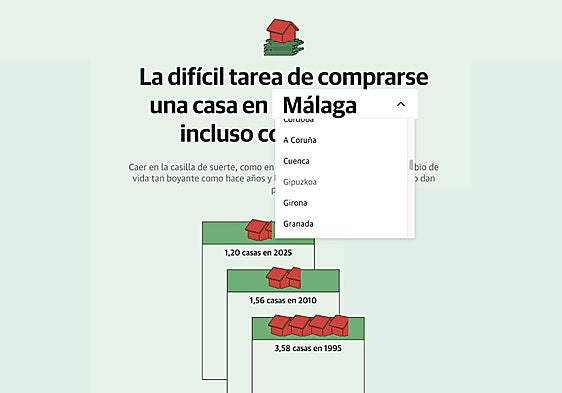Why it's not good to cut out fat completely from your diet
Although fats have been demonised in recent years, they are necessary for the brain and cardiovascular system to function properly
ISAAC ASENJO
Friday, 28 October 2022, 10:56
For many people it will come as a surprise to hear this, but it is a fact that nutrition experts are strong defenders of including fat in the diet as a way of staying healthy. "But isn't it better not to eat fats?" I hear you say. So let's explain: in the same way that not all calories are identical and do not all make you fat, the same applies to lipids.
"In terms of health, it is a common mistake when people who want to lose weight remove all fat from their diet," warns Paloma Quintana, a nutritionist and dietician with a degree in Food Science and Technology who has just written a book on cooking, eating and losing fat.
She says that eliminating it altogether can result in negative consequences for our hormonal composition, particularly for women as it can cause changes in the menstrual cycle because this macro-nutrient provides essential elements which our bodies are unable to manufacture on their own.
Saúl Sánchez, an expert on sport nutrition, agrees and he also points out that "if saturated fats are limited excessively it reduces the production of testosterone in men and affects not only the muscles but also energy output, so our vitality is also impaired".
How much fat do we need?
Obviously this does not mean we should start eating large quantities of fats. Experts advise that between 20 and 35 per cent of our calories each day should be provided by lipids. "Less than one gramme per kilo of someone's weight a day is not a good idea nor is it sustainable," Sánchez says, and that despite having been demonised for years, fats are as necessary as protein for the nervous system, brain and cardiovascular system to function properly.
However, it is important to know your fats because, just like in films, there are goodies and baddies.
"The only fats which have been authentically demonstrated to have a negative impact on our health are trans fats and hydrogenated fats, but on the other hand, over time, it has been shown that saturated fats are not dangerous for our health," he says.
It is important to know which fats are beneficial and which to avoid. "High quality fats are found in avocado, walnuts, olive oil, meats, eggs, dairy produce and white and oily fish, but it is best to keep well away from highly processed sweet and savoury items like cakes and some fast foods," says Paloma Quintana, who recommends including a bit of fat in every meal of the day.
Avocado yes, croissant no
"For breakfast, my favourites are scrambled eggs with avocado and tomato; for lunch I might have a vegetable salad dressed with virgin olive oil, mozzarella cheese and 20 grammes of chopped nuts; and for dinner, it could be a couple of oily fish steaks like salmon, or some anchovies or mackerel, with a helping of asparagus. And if we want a treat afterwards, we could have some Greek yoghurt for dessert with a sprinkling of almonds and an ounce of chocolate containing 85% cocoa," she says.
That menu is just an example, an idea of how a healthy meal can be made up (we calculated the quantities with the FatSecret app and this menu contains about 65 grammes of fat).
Weight loss
There is another thing that people believe, which is incorrect, these experts advise. Not eating fat does not mean you will lose more weight.
In terms of loss of fat, several studies have shown that it is worse to consume carbohydrates in which refined sugars predominate (such as sliced bread, pizza doughs, pasta and cakes), than it is to consume lipids and those carbohydrates have a greater influence on problems such as obesity, diabetes and cardiovascular illnesses.
When it comes to the debate about fats, some people argue that ketosis - a food plan which is low in carbohydrates and high in fats - is the natural metaboli state, but this is considered very controversial.
Specialists would only recommend a diet of this type for very specific amounts of time, for certain patients and always under the guidance of a professional. In fact, various studies have shown that the patients who benefit the most are those who have certain neurodegenerative illnesses such as Alzheimer's or Parkinson's Disease, epilepsy or diabetes.
"It is a therapeutic tool which we can use in some cases but it is not recommended in general without the help of a dietician-nutritionist," says the CEO of the Nutrición con Q company.
In this type of diet, fats make up 75% of the daily calorie intake, proteins account for 20% and carbohydrates the rest. For Paloma Quintana, however, if someone is interested in doing something like this ( a diet which is low in carbohydrates and high in fat), she would recommend one which allows for the inclusion of healthy foods such as fruit, vegetables, tubers and pulses.



